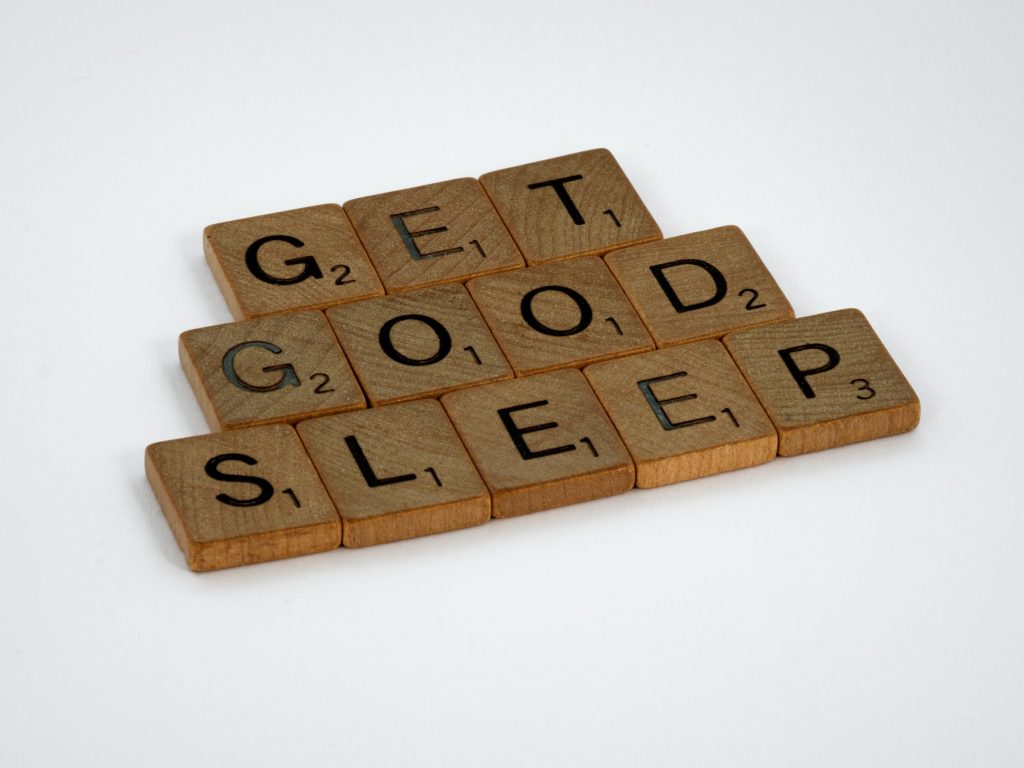
Image by Unsplash
I believe that we might all benefit from a bit less stress in our lives. There is more than enough stress to go around between regular job stress, maintaining relationships, negotiating social events, and managing the kids. Fortunately, if you put your mind to it, there are strategies to relieve stress levels. Like home workout reguarly, music meditation, positive thinking, and etc.
Let’s talk about how stress functions and appropriate coping mechanisms for preventing excessive stress.
Definition of Stress?

Image by Unsplash
Your body’s reaction to a task or challenge is stress. Everyone feels stress, which may be brought on by a variety of situations ranging from little inconveniences to significant life events like divorce or job loss. Physical symptoms like an increased heart rate and blood pressure, thoughts and ideas about the stressful event, and emotions like dread and rage are all parts of the stress response.
Although we often associate stress with bad events, such as a job promotion or the birth of a child, tension may also result from happy events in your life.
The following are some typical signs to look out for:
- Mood swings that result in headache and stress, difficulties concentrating, and despair
- Thinking challenges coupled with a feeling of fear and excessive rage
- Inability to sleep well results in irritation
- Physical changes such as loss of appetite
- The negative impact of absentmindedness on relationships
- Lack of self-esteem and motivation
- Being hard to move your body and exercise even home workout
- Far from positive thinking
Tired No Matter How Much You Sleep? Follow 10 Easy Ways for Sleep Hygiene!
Stress Management in a healthy way

Image by Unsplash
Stress has an important function in helping us react swiftly to dangers and stay safe. Long-term stress exposure, however, may result in increased physical health issues or mental health issues including lack of positive thinking, anxiety and depression.
Numerous studies have shown that being under more stress makes it harder to handle the physical disease. While no one can completely escape stress, you can try to manage it in ways that will improve your ability to recover.
1. Enhance your health with what you eat and drink
Some individuals turn to excessive eating or drinking in an effort to decompress. Although these acts may seem to reduce stress in the short term, they may fact increase it. Stress effects may be aggravated by caffeine as well. However eating a balanced, nutritious diet might assist in reducing stress.
2. Regular exercise
Exercise has been shown to be a very effective way to relieve stress in addition to its positive effects on physical health. Set realistic objectives for yourself and think about non-competitive aerobic activity, weightlifting, or movement practices like yoga or Tai Chi. Also, just start a home workout. It is an easy way to make excercise routine. Endorphins are organic chemicals that naturally make you feel better and keep a happy attitude. It has been shown that aerobic activity releases endorphins.
3. Give up using nicotine and tobacco products
Nicotine is often described as a way to relieve stress by those who use it. However, nicotine actually causes your body to experience greater stress since it raises physical arousal while decreasing blood flow and respiration. Smoking won’t help if you have ongoing stress or bodily pains since it might exacerbate chronic pain.
4. Meditation and using calming strategies
Everyday relaxation helps you manage stress and shield your body from its negative consequences. Deep breathing, guided visualization, progressive muscle relaxation, music meditation and mindfulness are just a few of the methods you may use. There are several websites and mobile applications that provide instructions on these methods.
5. Reduce stress-inducing factors
If you’re like most people, you probably have too many obligations and not enough free time. These requirements, for the most part, are the ones we selected. However, you may make more time by using time-management techniques like prioritizing, pacing yourself, defining priorities, and making time for self-care.
6. Examine your principles and uphold them
No matter how hectic your life is, you’ll feel better the more your actions align with your convictions. When selecting your hobbies, consider your values. Take part in activities that are consistent with our beliefs and speak to us personally in light of the demanding expectations and obligations we endure every day.
7. Be assertive
Saying “no” to requests for your time and energy that will put you under excessive stress is acceptable. You don’t always have to live up to other people’s expectations. Just live with positive thinking whatever they talk about you.
8. Make reasonable expectations and objectives
Realizing you can’t succeed in everything you do at once is also acceptable and beneficial. Consider the things you can influence, and concentrate on accepting the ones you can’t.
9. Promote your own interests
Remember your strengths while you’re feeling overburdened. There are techniques you may use to develop a strong feeling of self-worth and positive thinking.
10. Music Meditation
Music can relieve stress for many reasons. Music meditation may instantly and effortlessly soothe you physically and mentally. That’s why people find a audio or video for music meditation.
Choose the relaxing music you prefer. If you hate classical music, listening to it might be distressing. After a few minutes, you may be able to meditate to calming sound. If you don’t want to meditate, listening to music while doing other things might help you relax.
What to do if you’re having sleep issues?

Image by Unsplash
Sleep well is often compromised when you’re under a lot of stress. You could encounter sleeplessness due to discomfort, stress from personal problems, or drug adverse effects.
Try these suggestions if you’re having trouble falling asleep:
- Create a consistent sleep routine by going to bed and waking up at the same time each day.
- Ensure that your surroundings and bed are pleasant. Set up the pillows in a way that allows you to stay in a comfortable posture.
- Keep your bedroom dark and quiet.
- Keep sleeping in your bedroom to a minimum. Don’t watch TV or work in your bedroom.
- Don’t take too many naps throughout the day. Remember to mix up your home workout with rest breaks at the same time.
- Speak to your partner, spouse, or a reliable friend if you are feeling tense or apprehensive. Get your worries out of your head.
- Play some soothing music to relieve stress.
- Avoid relying on sleeping medicines. When used with other drugs, they may be hazardous. If alternative non-medication approaches fail, only use them if prescribed by your healthcare professional for a limited duration.
- If at all feasible, take diuretics (also known as “water pills”) earlier in the day to avoid waking up in the middle of the night to use the restroom.
- If you have trouble to sleep well, get up and relax until you are exhausted. Do not lie in bed obsessing about when you will fall asleep. You don’t need to have an obsession to sleep well.
- Prevent caffeine.
- Maintain a regular home workout schedule, but avoid exercising two to three hours before bed.
Final Words
Stress is inevitable. A little stress never hurts. Cortisol helps you see and avoid danger. Just take the time to identify and manage your everyday stressors. You may relieve stress in a healthy manner by making sure you sleep well every day. You may interrupt the sleep-stress cycle and sleep well with attention and effort.
Download the Alarmy App to track your sleep quality, quantity, and improvement with science-backed suggestions. You can explore several amazing free features and can also get premium features including personalized guidance, objectives, and challenges. It helps you focusing on yourself with music meditation.
That Changes The Way Of Falling Asleep And Waking Up – Install Alarmy




One thought on “10 Ways to Relieve Stress and Sleep Well”